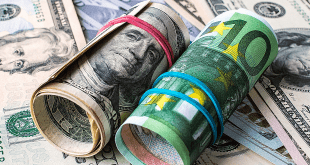The British pound has soared to its highest point in a year, propelled by investors seeking attractive returns as global interest rates decline. However, financial experts warn that sustaining this momentum may require more than just elevated interest rates.
Recent data reveals that UK inflation remains stubbornly high, prompting traders to reconsider their bets on an August rate cut by the Bank of England. This renewed confidence in the pound has pushed it above the $1.30 mark for the first time since July of the previous year.
Unlike the euro and even the dollar, the pound’s recent strength hasn’t been influenced by domestic political turmoil. Instead, it has been bolstered by a new government that promises stability and an improved economic outlook. Additionally, the International Monetary Fund recently revised its UK growth forecast upwards to 0.7% for the year.
The crux of the pound’s recent ascent lies in the belief that British interest rates will remain elevated for longer than those in other major economies. While many central banks have already begun cutting rates, the Bank of England and the U.S. Federal Reserve have yet to follow suit. However, signals suggest that the Fed may begin easing monetary policy in September.
Market analysts are cautious about the pound’s long-term prospects. Geoff Yu, a senior macro strategist at BNY, highlights the importance of determining the true driver behind the pound’s rise: whether it’s due to revised expectations for BoE rate cuts or Fed rate cuts. The pound’s recent strength against both the dollar and the euro suggests a reassessment of its value.
Although the pound’s rally has been broad-based, some concerns remain. The UK’s fiscal situation, with public debt expected to exceed 100% of GDP, limits the government’s flexibility in managing the economy. Kit Juckes, head of FX Strategy at Societe Generale, notes that while the recent CPI figures do not suggest an August rate cut, the economy’s underlying strength is uncertain.
Adding to the global market jitters are factors like a hung parliament in France and political instability in the U.S. presidential race, following the attempted assassination of Republican candidate Donald Trump and doubts about President Joe Biden’s ability to serve another term.
Despite the uncertainties, higher UK interest rates offer investors greater returns compared to other jurisdictions, contributing to the pound’s current position as the top-performing major currency.
Ultimately, the pound’s sustained strength will depend on a combination of factors, including the BoE’s monetary policy decisions, the government’s ability to deliver on its economic promises, and the overall stability of the global financial landscape.
 Noor Trends News, Technical Analysis, Educational Tools and Recommendations
Noor Trends News, Technical Analysis, Educational Tools and Recommendations





